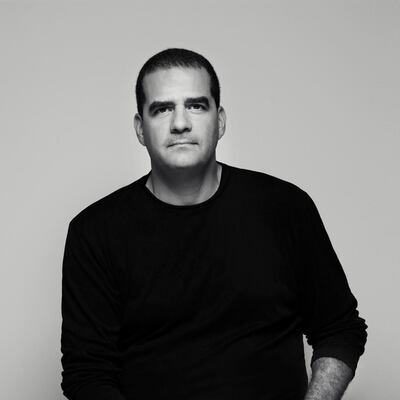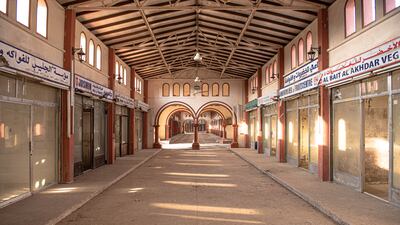Sharjah Architecture Triennial will present a series of discussions on environmental design and architecture as part of its autumn programme, which will begin in October.
SAT Talks: Re-materialise will feature panel discussions and a video series on recycled alternatives, as well as the use of unsustainable materials in architecture and construction.
The three-part video series traces the production of three different recycled materials that are available to local and regional designers, showing interviews with the materials’ creators and visitors to their factories and laboratories.
One of the creators featured is Ziad Abi Chaker, an environmental engineer who collects materials from his town of Beit Mery and other parts of Lebanon to recycle as building materials. The Rutgers-educated engineer founded Cedar Environmental in 1996 and has been working with his team to promote the recycling of building facilities in different municipalities.

The second video features Ghassan Afiouni, a chemist and founder of Steel Wood, which makes boards from recycled wood collected across the UAE.
The third episode turns the spotlight on Nicolas Calvet, co-founder and chief executive of Seramic Materials Limited, a UAE start-up company that is a pioneer in recycled ceramics.
The three speakers will appear at the launch of SAT Talks: Re-materialise at Al Qasimiyah School on Saturday, October 9.
Joining the panel will be fashion designer Noorin Khamisani, who is a lecturer at the Dubai Institute for Design & Innovation, and architect Mirko Daneluzzo, co-founder of design company Nyxo and a lecturer at DIDI.
The inaugural Sharjah Architecture Triennial, which opened in 2019, ended in February last year, just before the Covid-19 pandemic swept the globe. As a result, the team at SAT began to rethink its first iteration’s theme of Rights of Future Generations, which sought to address issues of inheritance and responsibility as it links to the continuing climate crisis and architecture.
Among its initial responses was an online podcast series Architecture+. Launched in April last year, it features architects such as Marina Tabassum and Mariam Kamara; Mina Akhavan, a professor of urban planning and design; and Ali Ahmad, a research fellow on energy policy.
In May this year, SAT’s spring programme marked the launch of Al Manakh Spaces, a series of community meetings and workshops that developed the open area of the repurposed Al Qasimiyah School into an “experimental urban garden” through direct engagement with the local neighbourhood.
SAT and the community worked together to create a green public space that can be the site of programmes and social gatherings.
More information on SAT Talks: Re-materialise can be found at sharjaharchitecture.org

